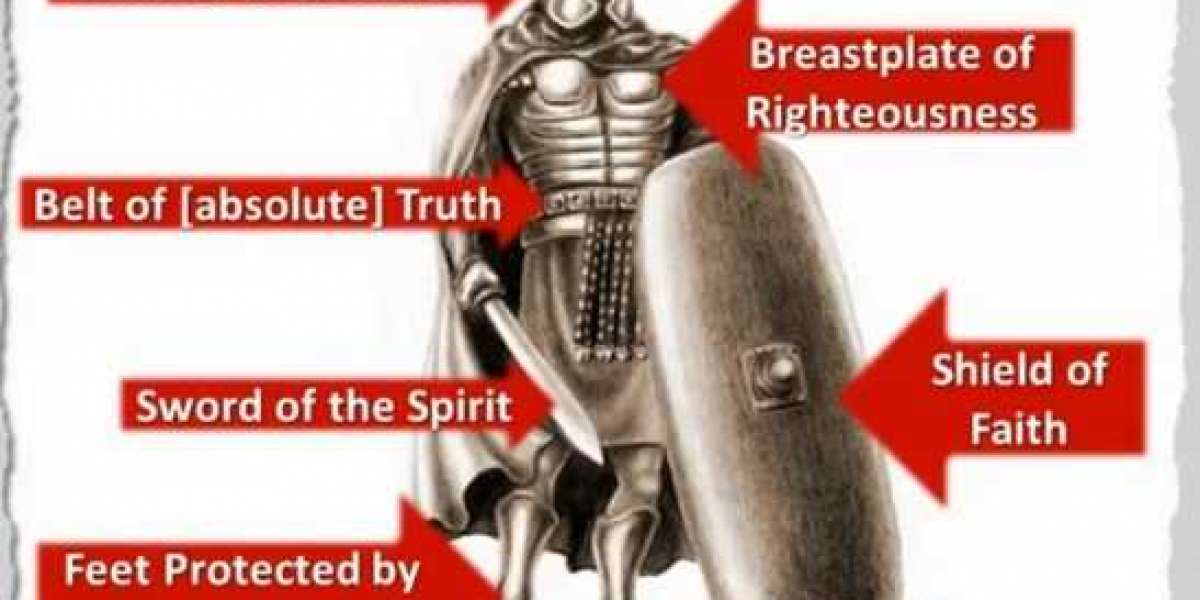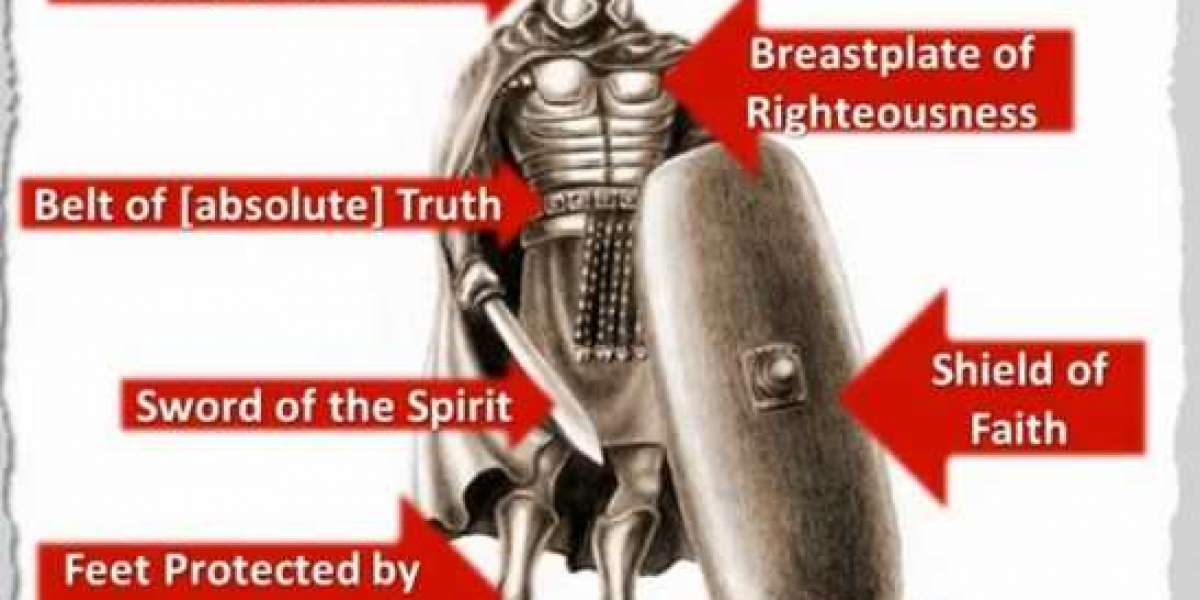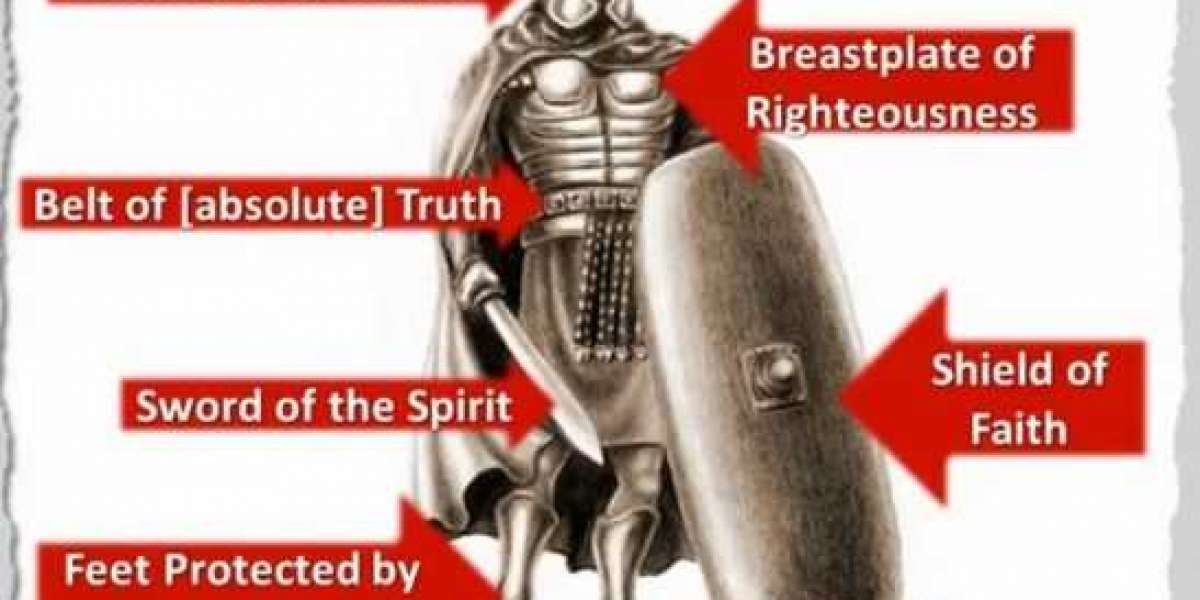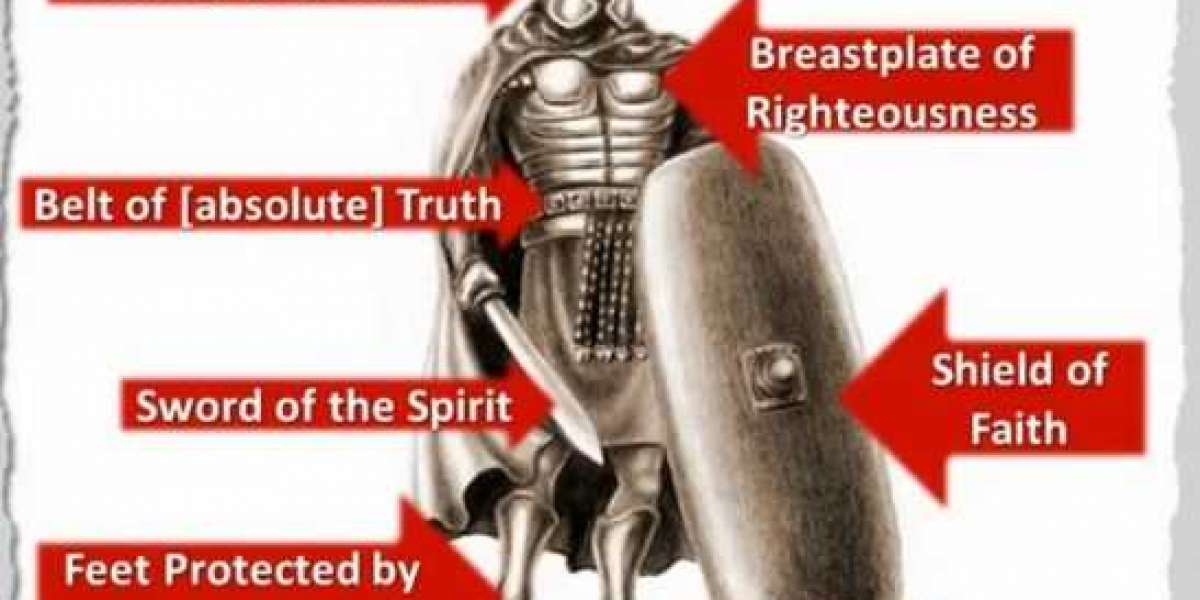The Gospel of Jesus Christ: A Thorough Study Guide
“For God so loved the world that He gave”—(note that this is all past tense; and because He truly ‘loved’ He DID something, and what He DID was give)—“His only begotten Son, that whoever believes in Him should not perish but have everlasting life” (John 3:16). “For BY GRACE you have been saved through faith, and that not of yourselves; it”—(that is, “salvation”: ‘that you have been saved’)—“is the gift of God,”—being a ‘gift’, of course, because it is ‘by grace’ alone; thus making the fact that we have been granted and are alike made able to receive salvation—“not of works, lest anyone should boast” (Ephesians 2:8; Romans 3:24, 6:23). And all the more is our salvation a ‘gift’ because even our “faith”—(which is the only possible means by which one willingly takes hold of any offered ‘gift’, and particularly a ‘gift’ of so marvelous and incredible a nature {Romans 4:16})—even our required “faith comes by hearing, and hearing” not merely from but “BY the Word of God” (Romans 10:17), Who is Christ (John 1:14); the evidence and actuality of that ‘faith’ being that the one “who looks into the PERFECT LAW OF LIBERTY”—{Colossians 2:14-23; Romans 14; Ephesians 5; Hebrews 12:3-11; Romans 13:1-7; 1st Peter 2:13-17; 1st Corinthians 14:37}—“and continues in it, is not a forgetful hearer but a doer of the work” (James 1:25), “obey[ing] from the heart that form of doctrine to which [they have been] delivered” (Romans 6:17; 1st Peter 2:21-24). “For ALL have sinned”—(past tense),—“and fall”—(present tense)—“short of the glory of God” (Romans 3:23); and “the wages of sin is death, but the gift of God is eternal life"/salvation "in Christ Jesus our Lord” (Romans 6:23). Therefore, if anyone seeks “to flee from the wrath to come” (Matthew 3:7; Luke 3:7), let them “repent” and be baptized “in the Name”—(singular)—“of the Father and of the Son and of the Holy Spirit” (Matthew 28:18-20; 1st John 5:7), which means, of course, “in the Name of Jesus Christ for the remission of sins” (Acts 2:38-39; 19:1-6), “for there is no other Name under heaven given among men by which we must be saved” (Acts 4:12), as “Jesus Christ is the true God and eternal life” (1st John 5:20); and “let everyone who names the Name of Christ depart from iniquity” (2nd Timothy 2:19); for “the fear of the Lord is the BEGINNING of knowledge” (Proverbs 1:7; Job 28:28). Thus, one should ask: “what, exactly, is the ‘fear of the Lord’?”, as it is only the beginning of one knowing anything—(for “if anyone thinks he knows anything, he knows nothing yet as he ought to know” {1st Corinthians 8:2} and “if anyone seems to be wise in this age, let him become a fool that he may become wise” {1st Corinthians 3:18}; a verse which makes reference to the fact that “the message of the cross is foolishness to those who are perishing” {1st Corinthians 1:18}). Well, simply and precisely answered, “the fear of the Lord is to hate evil” (Proverbs 8:13; Job 28:28). Why?—because the Merciful Lord Himself (Lamentations 3:22; Matthew 9:13), “[Who] do[es] not change” (Malachi 3:6; Hebrews 13:8), being Holy and undefiled (Leviticus 11:44-45; 1st Peter 1:15), therefore hates evil and must necessarily punish it (Habakkuk 1:12-13; Psalm 11:56; Proverbs 6:16-19; Colossians 3:5-7; Zechariah 8:16-17), though “[He has] no pleasure in the death of the wicked, but that the wicked turn from [their ways] and live” (Ezekiel 18:23,33:11). Thus, the “just,” “good,” and “holy law” (Romans 7:12), solely by which we “know sin” (Romans 7:7), and which “was added because of transgressions” (Galatians 3:19), so as to keep us “under guard” (Galatians 3:23), and which reveals our common “guilt before God” (Romans 3:19), functions as “our tutor to bring us to Christ, that we might be justified by faith” (Galatians 3:24; Psalm 119:155; John 6:45), when finally “Christ is formed in [us]” (Galatians 4:19), and has “sent forth the Spirit of His Son into [our] hearts” (Galatians 4:6; Ezekiel 36:27; Acts 5:32; Hebrews 10:36-37; Ephesians 1:13-14), to thereby make us “known by God” (Galatians 4:9; Matthew 7:23; 1st Corinthians 8:3), just like a Biblical husband (symbolic of Christ) comes to "know" his faithful bride (symbolic of the Church), the two becoming one (Ephesians 5:23,24,28,30-32), that we might no longer “let sin reign in [our] mortal bod[ies], that [we] should obey it in its lusts” (Romans 6:12), but that we might “walk in the Spirit, and not fulfill the lust of the flesh” (Galatians 5:16; Romans 8:16-18), because “He who is in us is greater than he who is in the world” (1st John 4:4), being “able to keep [us] from stumbling and to present [us] faultless before the presence of His glory with exceeding joy” (Jude 1:24).
Therefore, “STUDY to show yourself approved unto God, a WORKER who does not need to be ashamed, rightly dividing the word of truth” (2nd Timothy 2:15).
For Christ, when in the flesh, explained this Himself, saying, "He who has My commandments and keeps them, it is he who loves Me. And he who loves me will be loved by My Father, and I will love him and manifest Myself to him" (John 14:21; John 15:14; Matthew 5:8; Hebrews 12:14), further saying, “As the Father loved me, I also have loved you; abide in My love,” immediately explaining, “If you keep My commandments, you will abide in My love, just as I have kept My Father’s commandments and abide in His love” (John 15:9-10).
Hence, we plainly see that "faith without works is dead" (James 2:20; Revelation 3:1). After all, are God the Father and the Lord Jesus Christ the God of anything “dead”?—or is He not rather the God of all life and of all the living, as Christ says of Himself most clearly in Luke 20:38 and Mark 12:27 (Ephesians 2:1; Isaiah 26:14; 1 Timothy 5:6)? Indeed, it is Satan who is the god of the dead (John 8:44), being "god of this world" (2nd Corinthians 4:4) and of all “those who are perishing” (1st Corinthians 1:18), and of all who, despising the wisdom of God, invariably “love death” (Proverbs 8:36; Matthew 13:15), who are the "dead who bury their own dead" as Christ remarked in Matthew 8:22.
The Lord, God, is completely sensible and logical, affirming this Himself by saying to us, "Come now, and let us reason together" (Isaiah 1:18). Thus, Scripture cannot be thought "unreasonable" (2nd Thessalonians 3:2; Acts 17:2); nor is it full of "contradictions" like that of the world's "false knowledge" (1st Timothy 6:20); but its teachings promote and are in accordance with the thoughts of a "sound mind" (2nd Timothy 1:7).
And does not even the degenerate or unregenerate mind inherently know that all men act the way that they believe, and that men’s actions only verify the innermost belief of their heart? (Proverbs 23:7; Proverbs 4:23). For example, do we not casually presume—and rightly so—that men do not attempt to breathe under water, apart from the aid of a breathing apparatus, because they most fervently believe that they will drown upon doing so?—and that anyone who protests otherwise can only confirm the doubtful truth of their outlandish protestations by taking accordant action, otherwise we know for a fact that they lie? Hence, "show me your faith without your works, and I will show you my faith by my works" (James 2:18). Indeed, it is a fact taken supremely for granted by all mankind, that the reason we do not see men jumping off of fatal cliffs flapping nothing but their unaided arms is simply because all men believe that their unaided arms cannot permit them to fly. Or do we judge this an invalid presumption on the part of observing men who endeavor to think and reason? Most evidently not!
Thus, "faith without works is dead"; and those who are not doers of the Word only "deceive themselves" (James 1:22); and such claimants merely "profess to know God, but in works they deny Him" (Titus 1:16); their "actions speaking louder than words" (popular secular saying); because anyone "who says, 'I know Him' and does not keep His commandments, is a liar, and the truth is not in him" (1st John 2:4); for "faith works together with works, and by works faith is made perfect" (James 2:22); for even the "demons believe" (James 2:19), but their belief is devoid of good works, of which we know God to approve, and therefore amounts to nothing, evidently not being “of God”, for “whoever has been born of God does not sin, for His Seed (Christ/The Holy Spirit) remains in him, and he cannot sin, because he has been born of God” (1st John 3:9); for “God is love” (1st John 4:8), and “love does no harm to a neighbor; therefore love is the fulfillment of the law” (Romans 13:10). "You see then that a man is justified by works and not by faith [alone]" (James 2:24).
It is therefore that Christ gives us the warning, "Why do you call me 'Lord, Lord,' and DO not the things which I say?" (Luke 6:46). Therefore, He tells those claiming Him who persist in sin, "Depart from Me, all you WORKERS of iniquity" (Luke 13:27), justly rendering “‘to each one according to his WORKS: eternal life to those who by PATIENT CONTINUANCE IN DOING GOOD seek for glory, honor, and immortality” and thus granting “glory, honor, and peace to everyone who WORKS what is good” (Romans 2:6-10), because “a good tree cannot bear bad fruit, nor can a bad tree bear good fruit” and “every tree that does not bear good fruit is cut down and thrown into the fire” (Matthew 7:18-19), which is only sensible seeing as "we are His WORKMANSHIP, created in Christ Jesus for good WORKS, which God prepared beforehand that we should WALK in them" (Ephesians 2:10).
Thus, “if, while we seek to be justified by Christ, we ourselves also are found sinners, is Christ therefore a minister of sin? Certainly not! For if I build again those things which I destroyed, I make myself a transgressor. For I, through the law, died to the law that I might live to God. I have been crucified with Christ; it is no longer I who live, but Christ lives in me"--{Galatians 5:24; 1 Peter 4:1; Zechariah 13:9; Job 23:10; Psalm 66:10-12; 1 Peter 1:6-7, 2:5, 4:12-14; Revelation 3:10}--"; and the life which I now live in the flesh I live by faith in the Son of God, who loved me and gave Himself for me. I do not set aside the grace of God; for if righteousness comes through the law, then Christ died in vain” (Galatians 2:17-21), by the Atoning Sacrifice of which Christ graciously imputes to us His own righteousness (Romans 5:19) and “gives the Holy Spirit to those who ask Him” (Luke 11:13) and “to those who obey Him” (Acts 5:32), "so that after you have done the will of God, you may receive the promise" (Hebrews 10:36-37/Habbakuk 2:2-3; Acts 2:38-39).
Bearing these scriptural truths in mind, we may properly comprehend the point of Job’s suffering, during which young Elihu, speaking from his “upright heart” (Job 33:3), opposed Job, of whom God had already acknowledged that “‘there is none like [Job] on the earth, a blameless and upright man, one who fears God and shuns evil’” (Job 1:8); the young Elihu countering that same formerly blameless man with his declaring, “I will ascribe righteousness to my Maker” (Job 36:3), and further rebuking Job for having had the audacity to declare, “‘I am righteous’” (Job 34:5), “‘I am pure, without transgression; I am innocent, and there is no iniquity in me’” (Job 33:9), informing Job, and consequently all of us who have ears to hear, that “‘IN THIS, [Job was] not righteous’” (Job 33:12), thereupon affirming Job’s earlier fear, which regarded him “‘wish[ing] to contend with [God]’” (Job 9:3), when he said, “‘Though I were righteous, my own mouth would condemn me’” (Job 9:20); for, as Christ tells us, “‘Those things which proceed out of the mouth come from the heart, and they defile a man’” (Matthew 15:18); implying that a sincere heart-change necessarily results in a lifestyle change (Proverbs 4:23) radically altering both our words and deeds (1st John 3:18); for righteous Job, evidently struggling in his heart to accept his total unworthiness, sought to justify himself by his own righteousness contrary to the reality long known to God’s people: that “shame of face belongs to us” (Daniel 9:8), and that when we are made to suffer we suffer "less than our iniquities deserve" (Ezra 9:13), because “all have sinned” (Romans 3:23), for which the “wages are death” (Romans 6:23)—(this, therefore, being the reason that the pronouncement of death has been appointed to all men (Hebrews 9:27), among whom Job, in spite of all his righteousness, was no exception);—and that, in fact, it is the Lord Himself who “preserves the way of His saints” (Proverbs 2:8), routinely “delivering us from evil” (Matthew 6:13), such that “when [we] are tempted, He also provides a way out, so that [we] can endure it” (1st Corinthians 10:13); thus, it is fit that we see the twenty-four elders casting their inherited crowns before Him who sits on the heavenly throne (Revelation 4:10), they evidently believing that which John the Baptist professed, which was, “He must increase, but [we] must decrease” (John 3:30).
Nevertheless, “He who began a good work in [Job] completed it” (Philippians 1:6); and He completed it for the edification of countless generations in that He “inscribed” Job’s story “in a Book forever” (Job 19:23-24), that we might learn, in doing good—(which is “[our] reasonable service” {Romans 12:1}, and “our duty to do” {Luke 17:10}),—to glorify Christ alone (2nd Corinthians 10:17-18). And so we see Job comprehending his true state before His God and Savior, to the end that he should henceforth glory in his Redeemer and in his Redeemer alone, when God says to Him: “Shall the one who contends with the Almighty correct Him? He who rebukes God, let him answer it” (Job 40:2); furthermore, God saying to Job, “Would you indeed annul My judgment? Would you condemn Me that you may be justified? Have you an arm like God? Then I will also confess to you that your own right hand can save you” (Job 40:8,9,14); to which righteous Job rightly responds, “Behold, I am vile; what shall I answer you? I lay my hand over my mouth” (Job 40:4). This answer ought to be all the more marvelous when we recognize that Job belonged to an elite class of righteous men—“Noah, Daniel, and Job”—as God Himself recognizes in Ezekiel 14:14; but, nevertheless, it is the answer that all who encounter Christ must believe and therefore profess (Romans 3:19). For Job’s equally righteous compatriot, Daniel, spoke well in Daniel 9:3-19, saying, in spite of all his righteousness, “O Lord, righteousness belongs to you, but to us shame of face”; and furthermore, “To the Lord our God belong mercy and forgiveness, though we have rebelled against Him. For we do not present our supplications before You because of our righteous deeds, but because of Your great mercies” (see also Titus 3:4-7). Likewise, David, who said: “What shall I render to the Lord for all His benefits to me? I will take up the cup of salvation, and call upon the Name of the Lord” (Psalm 116:12-13); and so we must all do.
This rebuke, of the righteous trusting in their own righteousness, more precisely addresses what is meant by declaring that men are saved by grace through faith in Christ alone and not by their works (Luke 18:9-14; Ezekiel 16:14-15, 28:14-15,17); for all who come to Christ are called to live righteously, and can only understand Christ and sin in the light of the law of righteousness (Daniel 12:10; Ezekiel 12:2; Jeremiah 5:21-23; Matthew 13:11-16; John 3:20-21). Otherwise what does Christ condemn? (Ezekiel 18:20; Romans 6:23)—what did He alone fulfill, that is the glory which we all fall short of? (Romans 3:23)—what exactly is He saving us from? (Matthew 1:21; 1st John 3:5; John 8:31-34; Hebrews 2:14-15)—and is it merely the wrath of God (a.k.a hell) that one is seeking to be saved from, or is it indeed, as it needs to become, salvation from the bondage of sin (John 8:34; 1st John 3:7-8), the consequence for which necessarily brings upon us God’s terrible condemnation? (Romans 6:20-21). The difference between these two latter desires is strikingly profound, and a matter of eternal life and death. For even Satan does not want to go to hell; hence he "has great wrath because he knows that he has a short time" (Revelation 12:12). Thus, one must pursue righteousness, and become familiar with it, if one is to know whether they desire righteousness for all eternity, and actually love God, as Christ says. Ezekiel 33:13-16 captures this process beautifully, with the Lord declaring, “When I say to the righteous that he shall surely live, but he trusts in his own righteousness and commits iniquity, none of his righteous works shall be remembered; but because of the iniquity that he has committed, he shall die. Again, when I say to the wicked, ‘You shall surely die,’ if he turns from his sin and does what is lawful and right, and walks in the statutes of life without committing iniquity, he shall surely live; he shall not die. None of his sins which he has committed shall be remembered against him.” This is the whole disqualification of the nation of Israel:—that they put their faith in the works of the law (Romans 9:31-32), which was entrusted solely to them apart from all other people and nations (Amos 3:2), and had become to them a thing of immense pride, and that they did not put their faith in the Holy One who gave them the Law, in God alone, which would have humbled their hearts; and so God revealed their inevitable and manifold hypocrisy (see all of Matthew 23); for, by the example of Israel, it is made starkly evident that no amount of works are sufficient to produce the humility of faith, but that the humility of faith is alone sufficient to produce the works of righteousness in which the Lord delights (Romans 3:30, 9:30; Hebrews 3:18-19); thus faith is accredited to a man as righteousness, meaning that that which would not seem a work, because being internal and of the heart, is accredited to a man as though it were an outward righteous work, because faith has always been the only foundation of righteous works among the righteous servants of God (see all of Hebrews chapter 11), righteous works only ever being a natural emanation of a faithful and thus rightly oriented heart; thus, those who have a heart of faith, will naturally do righteously (Matthew 12:35; 1st John 3:7): “therefore by their fruits you will know them” (Matthew 7:20; Romans 6:22).
Let those who claim Christ not be like those described in Ezekiel 33:30-32: “As for you, [preacher of the Word], the children of your people are talking about you beside the walls and in the doors of the houses; and they speak to one another, everyone saying to his brother, ‘Please come and hear what the word is that comes from the Lord.’ So they come to you as people do, they sit before you as [if they are] My people, and they hear your words, but they do not DO them; for WITH THEIR MOUTH THEY SHOW MUCH LOVE, but THEIR HEARTS PURSUE THEIR OWN GAIN. Indeed you are to them as a very lovely song of one who has a pleasant voice and can play well on an instrument; for they hear your words, but they do not DO them.”
And so Christ directly says to those who would wish to receive the promise of eternal life, and to be known by Him, to “STRIVE to enter through the narrow gate, for many, I say to you, will seek to enter and will not be able” (Luke 13:24); and, speaking indirectly through His servant Paul, “Examine yourselves as to whether you are in the faith. Test yourselves” (2nd Corinthians 13:5); and “WORK out your own salvation in fear and trembling” not failing to immediately enlighten us that “it is God who WORKS in you both to will and TO DO for His good pleasure” (Philippians 2:12-13; Isaiah 55:11; Isaiah 26:12-13), because "no one can come to [the Son], unless the Father who sent [the Son] draws him" (John 6:44); it ultimately not being “of him who wills, nor of him who runs, but of God who shows mercy” (Romans 9:16), Who “fashioned for [us} all [our] days” “when as yet there were none of them” (Psalm 139:16; Ecclesiastes 6:10), having “chose us in Him before the foundation of the world” (Ephesians 1:4-5; Romans 8:29-30; John 15:16; Jeremiah 1:5), and Who we therefore humbly regard as “the Author and Finisher of our faith” (Hebrews 12:2).
Thus we see that the “many”, according to Christ, will merely “seek” to enter, not “strive” to enter; as, therein that passage, we see Christ bringing into contrast these two terms, and not treating them as equal; He therefore suggesting that the “many”, as opposed to the “few” (Matthew 22:14), will merely look to see if they can get in, and not endeavor to do so in sincerity of heart, not doing so "diligently" (Hebrews 11:6), not “[seeking as foremost] the kingdom of God and His righteousness” (Matthew 6:33), not “struggl[ing] with God and with men, and prevail[ing]” (Genesis 32:28), not being “more than conquerors” (Romans 8:36-37), not “enduring to the end” and so being “saved” (Matthew 24:13; Revelation 2:10, 21:7; 2 Timothy 4:7-8), but rather being overcome by he who is of this world and by all those who are his; for Christ has said, "All that the Father gives to Me will come to Me, and the one who comes to Me I will by no means cast out" (John 6:37).
In truth, the “many” never come to seek or look for the Person of Christ Himself, truly hating His “gentle”, humble, and “lowly” characteristics (Matthew 11:29), and therefore refusing to obey Him by “deny[ing themselves] and tak[ing] up [their] cross” (Matthew 16:24), just as He did (Matthew 26:39; Luke 22:42), being unwilling and likewise unable to “present their bodies [as] a living sacrifice” (Romans 12:1); but the “many” only seek and look for a way to get into heaven, hypocritically claiming an association with the Pure Person of Christ, (Name-dropping, if you will), while evidently living for the impure world (1st John 3:3), deceiving themselves; of whom He has described, "[They] search the Scriptures, for in them [they] think [they] have eternal life; and [the Scriptures] are they which testify of ME. But [the many] are not willing to come to ME that [they] may have life" (John 5:39-40). Hence, we find the “many” described by Christ as futuristically justifying themselves for simply having “ate and drank in His presence” or having “done many wonders in [His] name” (Matthew 7:22), they being the people belonging to the class of the merely “called” (Matthew 22:14), about whom He has long ago spoken in Amos 5:21,23-24, (though, then as now, they characteristically ignore His Word), in which He says: “I hate, I despise your banquets, and I do not savor your sacred assemblies. Take away from Me the noise of your songs, for I will not hear the melody of your stringed instruments. But let JUSTICE run down like water, and RIGHTEOUSNESS like a mighty stream”; concerning whom He further says, in Isaiah 1:13-17, “I cannot endure iniquity and the sacred meeting. I am weary of bearing them. When you spread out your hands, I will hide My eyes from you; even though you make many prayers, I will not hear. Your hands are full of blood {see 1 John 3:14-15}. Wash yourselves, make yourselves clean; put away the evil of your doings from before My eyes. Cease to do evil, learn to do good; seek justice, rebuke the oppressor; defend the fatherless, plead for the widow”; and to whom, finally, He most vehemently forewarns: “I know your WORKS, that you have a name that you are alive, but you are dead" (Revelation 3:1); yes: “I know your WORKS, that you are neither cold nor hot. I could wish you were cold or hot. So then, because you are lukewarm, and neither cold nor hot, I will vomit you out of My mouth. {Jeremiah 3:10-11} Because you do not know that you are wretched, miserable, poor, blind {Matthew 15:14} and naked;—anoint your eyes that you may see. As many as I love I rebuke and chasten {Deuteronomy 8:5; Hebrews 12:6-7; Proverbs 13:24; Proverbs 20:30; Ecclesiastes 8:11}. Therefore BE ZEALOUS {Titus 2:14} and repent. Behold, I stand at the door and knock” (Revelation 3:15-20). In a word, His plea before this sort, then as it is now, though they do not listen, is to “be spiritually minded”, “for to be carnally minded is death” (Romans 8:6). Thus, we find those who merely “seek” entry being described as: “always learning and never able to come to the knowledge of the truth” (2nd Timothy 3:7); because such as they ever remain “forgetful hearer[s]” and are not “doer[s] of the WORK” (James 1:25) and rather "twist the Scriptures to their own destruction" (2nd Peter 3:16), being always disqualified on the basis, as we see Christ exposing them, of being “WORKERS of iniquity” as opposed to “WORKERS of righteousness”; the latter of which obedient work is sufficient to make men more like Christ, and thus more relatable to Christ, that men might comprehend Him and His ways, unlike those of the darkness who can’t “comprehend [Him]” (John 1:5; 1st Corinthians 2:14; 2nd Corinthians 4:3-4; Hebrews 12:14);—this process of conforming to His righteous image and not to the world’s being that which “renew[s] [men’s] mind[s],” in order that those of the chosen few might come to “prove what is that good and acceptable and perfect will of God” (Romans 12:2), once finally being made “wise unto salvation through faith” (2nd Timothy 3:15), which is total belief in the Person of Christ, and all that He is and has done, and truly knowing Him because one has come to be “known by Him” (Galatians 4:9), by receiving His Spirit; for “no one knows the things of God except the Spirit of God,” which is no different a truth than the commonly understood truth of “[no one] know[ing] the things of a man except the spirit of the man which is in him” (1st Corinthians 2:11); hence, through “receiv[ing] the Spirit who is from God, we [are able to] know the things that have been freely given to us by God,” (1st Corinthians 2:12), such that, having been made “children of God” (1st John 3:1), we, the saints, who are to judge both this world and angels (1st Corinthians 6:1-6), in like manner as God Himself (1st Samuel 16:7), will not, in this life, “judge according to appearance, but judge with righteous judgment” (John 7:24); “[we] who [are] spiritual judg[ing] all things, yet [we ourselves being] rightly judged by no one” (1st Corinthians 2:15).
Thus we see that one cannot hate righteousness and love God (John 3:20). For what are the righteous commandments of the invisible God but His own characteristics, but His own qualities (John 17:25; Psalm 11:7; 1st John 3:3,7), but that which He takes supreme pleasure in, hence why He was “well pleased” with His Son (Matthew 3:17)? No one has seen the invisible God (John 1:18; 1st John 4:12; Colossians 1:15), nor has anyone living seen Christ with their physical eyes. And, all the same, so what if one has? Is a man his physical body, which is merely his tabernacle or his tent (1 Corinthians 3:16, 6:19; 2 Corinthians 5:4, 6:16; 2 Peter 1:14), which only ever communicates his location and the limitations of his physical abilities? Or is a man known rather by his predominantly invisible, inward characteristics which he must communicate to another as truth by consistent demonstration? (Luke 6:44-45; Matthew 12:34-35; Proverbs 4:23)
Rejecting God’s commandments, but claiming to love Him and to have a good relationship with Him, is no different from one saying that they hate the outdoors—in other words, that one does not hold nor keep to the values of outdoor living—but that they nevertheless desire to wed an outdoors-man. Or for one to say that they despise having minimal possessions, but nevertheless intend to marry a minimalist for the rest of their life, let alone for eternity; or that one who hates eating vegetables wishes to marry a vegan. The varying examples of this one principle are endless. To this end, God rhetorically puts forth the question, “Can two walk together unless they are agreed?” (Amos 3:3). For a hitchhiker only continues with his driver so long as they continue in the same direction, for as long as they share the same destination, and necessarily part ways upon no longer seeking the same end.
Such people, who say these contradictory things, walk about in the “imagination of their hearts” (Luke 1:51; Jeremiah 9:14,13:10, 18:12; Genesis 6:5), as all sinners do, and make God up in their minds, or they have been temporarily deceived, though perhaps intending to mean well, by the plentiful false teachers of the day (Matthew 24:11; 2nd Timothy 3:13). For God does not merely give us the command to “Love [Him] with ALL [our] heart, with ALL [our] soul, and with ALL [our] mind” (Matthew 22:37; Jeremiah 29:12-14), the fulfillment of which might appear to be akin to a man having faith alone, seeing as most men would hastily claim to harbor this mindset, saying that only God can judge their hearts (Jeremiah 3:10-13); but He likewise consistently pairs as equal to this command—(though Christ Himself was only ever asked to identify the SINGLE greatest commandment)—that we likewise “love [our] neighbors as [ourself]” (Matthew 22:39), which is most obviously a demonstrable work; so even Christ puts forth the perfection of faith by works, and the true dead state of faith alone, just as his brother James does, which ought to come as no surprise, as the latter man only spoke in and by the Spirit of the Former (2nd Peter 1:20-21). Thus, the second commandment, made equal to the first, takes what would inevitably remain subjective, to our self-deceiving hearts (Jeremiah 17:9), if left by itself, and renders it clearly objective, that we might know if we truly care to fulfill the reality of the first; on account of which we are likewise given the story of the good Samaritan in Luke 10:25-36, and are given more specific instruction to “honor all men” and “love the brotherhood” (1st Peter 2:17), seeing as that which we do to the "least of [His] brethren", is that which we "[do] to [Him]" (Matthew 25:31-46); being further told not to "forsake the assembling of ourselves together" (Hebrews 10:25), because the people of God whom form the church are instruments of our sanctification and preservation in Christ (Matthew 18:21-35; Hebrews 3:13; Luke 17:3-4). And these sentiments are echoed in the Holy-Spirit-inspired text of 1st John 4:20-21, that “If someone says ‘I love God,’ and hates his brother, he is a liar, for he who does not love his brother whom he has seen, how can he love God whom he has not seen? And this COMMANDMENT we have from Him: that he who loves God must love his brother also”; for those of the brethren are not only once, but twice made in the image of God: firstly because they are of humankind, set apart from the beasts, like all men physically bearing God’s image (Genesis 1:26); and secondly, because it is to our genuine brothers and sisters exclusively that the “promise of the Holy Spirit" (Luke 24:49; Acts 1:4-5,8, 2:33, 5:32; Romans 8:9) has been given to indwell them and "cause [them] to walk in God’s [ways] and [to] keep [His] judgements and DO them" (Ezekiel 36:27), thus having their inward man being made in God’s image as well; therefore to hate them, is truly to hate God.
When people vaguely claim that Christ spent the majority of His time in the company of sinners, (which, truth be told, is, perhaps, the vastest understatement), these people notoriously ignore the fact that Christ gave context to His association with sinners, identifying Himself as Physician, and they as His sick patients, in need of His healing (Luke 5:31-32); His association being that of a Doctor treating his patients. Those who arbitrarily make this pronouncement, are essentially endeavoring to make a slanderous claim no different and no less illogical than that of accusing a legitimate doctor of purely fraternizing with the sick and rather taking up those people’s poor habits and regularly infecting himself with their diseases, with no intention of curing them, but only giving license, by his carousing companionship, to all infirmity at large; this is most definitely foolishness and the lawlessness of sin (Proverbs 15:5; 1st John 3:4).
The Beatitudes say it all, in Matthew 5:3-10, though one must read them with understanding in order to perceive. In them, only one kind of person is being described, and to that kind of person, is one Gift being given. The Beatitudes do not describe several different types of people to whom are given various gifts.
“Blessed are the poor in spirit (Matthew 6:19-21, 10:37-39, 19:23-26),
For theirs is the kingdom of heaven (Luke 17:20-21; Romans 14:17).
Blessed are those who mourn (Ezekiel 9:4-6; 2nd Corinthians 11:28-29; James 4:9-10),
For they shall be comforted (John 16:33; Psalm 119:165; Isiah 51:12; John 15:26; Philippians 4:6-7).
Blessed are the meek (1st Peter 3:4),
For they shall inherit the earth (Psalm 37:11).
Blessed are those who hunger and thirst for righteousness (Job 23:12; Psalm 119:40,97,103; Jeremiah 15:16; Ezekiel 3:3; Revelation 10:10-11),
For they shall be filled (John 6:32-35,53-58, 4:13-14).
Blessed are the merciful (Psalm 103:8; Lamentations 3:22,32-33),
For they shall obtain mercy (Matthew 18:23-35; James 2:13).
Blessed are the pure in heart (1st Timothy 1:5),
For they shall see God (Psalm 139:23-24; 1st John 3:3; Hebrews 12:14; Zechariah 13:9).
Blessed are the peacemakers,
For they shall be called sons of God (Mathew 5:43-45; Romans 12:17-21).
Blessed are those who are persecuted for righteousness’ sake,
For theirs is the kingdom of heaven” (John 15:20; Acts 14:22; Romans 8:17; 2nd Timothy 3:12).








